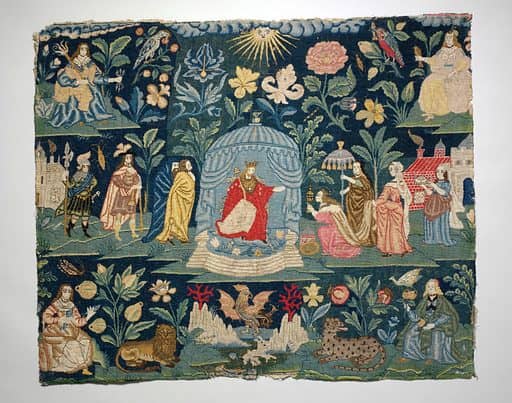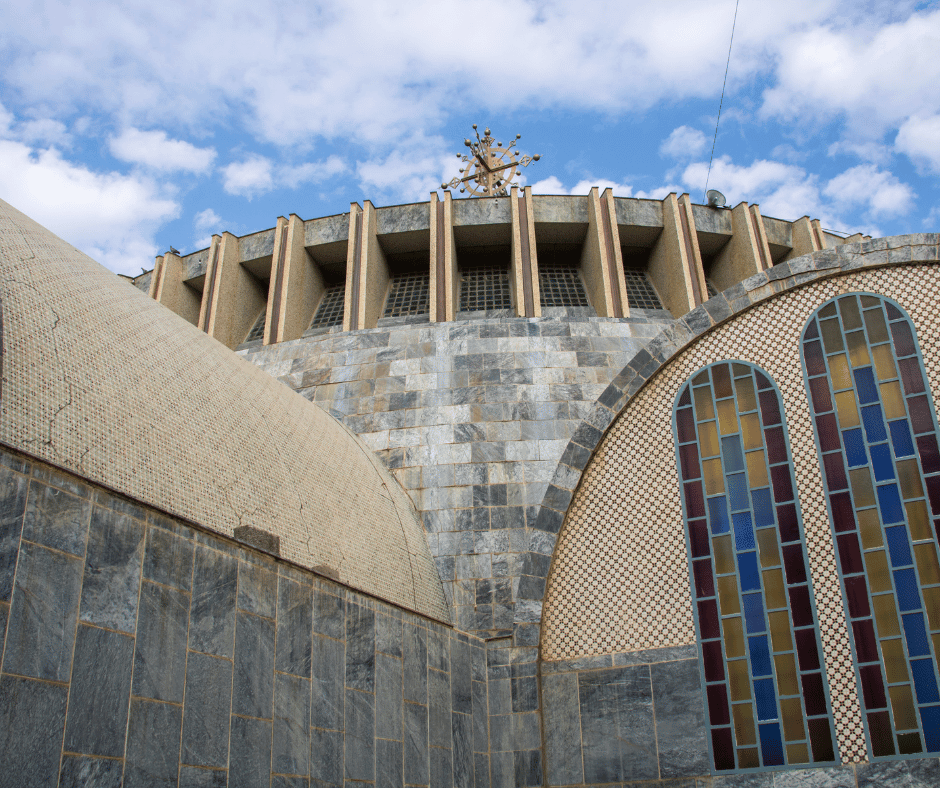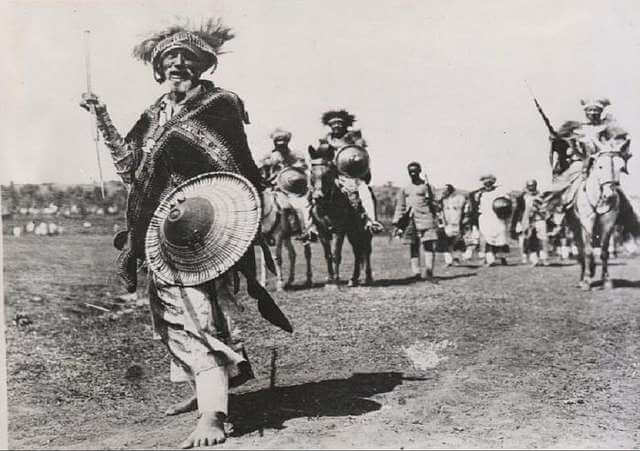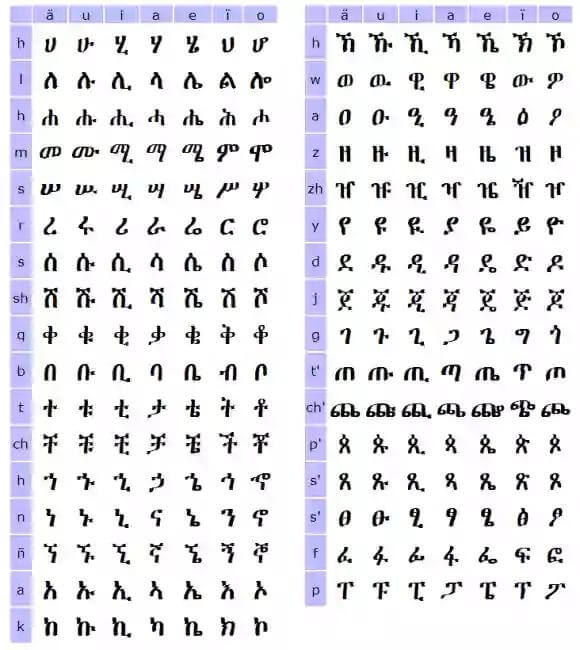- Home
- Exploring the Rich Ethiopian History
- 10 Ethiopia History Facts: Forget What You Think You Know!
10 Ethiopia History Facts: Forget What You Think You Know!
Explore 10 fascinating facts about Ethiopia, the country in the Horn of Africa. Forget what you think you know and discover something new!
Table of Contents
Ethiopia, the ancient land with a rich and fascinating history, is home to a plethora of interesting facts that make it a truly unique country in Africa. From its ancient origins to its modern-day fame, Ethiopia has plenty of intriguing details that make it an enthralling destination for history buffs and curious travelers. In this fact file about Ethiopia, we will delve into the interesting and fun facts that showcase the country’s unique attributes and historical significance. Join us as we explore Ethiopia history facts, and uncover the captivating story Ethiopia has evolved over the centuries .
10 Fascinating Facts About the History of Ethiopia

The Cradle of Humankind
Ethiopia, often hailed as the “Cradle of Humankind,” holds a key to understanding our earliest ancestors. In 1974, a significant discovery was made in the Afar region: the fossilized remains of “Lucy” (or Dinknesh), a 3.2 million-year-old Australopithecus afarensis. This discovery, pivotal in the field of anthropology, underscores Ethiopia’s role in the story of human evolution. The fact that our species, Homo sapiens, also first walked these lands, according to recent findings, further cements Ethiopia’s place in our collective heritage.

The Kingdom of Aksum
Between the 1st and the 10th century AD, the Kingdom of Aksum reigned, leaving a legacy etched in stone and history. As a hub of commerce and culture, Aksum’s influence stretched beyond present-day Ethiopia, trading with ancient Rome, Egypt, and India. The kingdom’s remarkable architectural achievements, like the towering obelisks, and its role in the early adoption of Christianity in Africa, are testaments to its power and sophistication.

The Solomonic Dynasty
Ethiopia’s history is deeply intertwined with the legend of the Solomonic Dynasty. This lineage, claiming descent from the biblical King Solomon and the Queen of Sheba, has a mythical status in Ethiopian history. The dynasty, which began in the 13th century and continued until the overthrow of Emperor Haile Selassie in 1974, played a pivotal role in shaping the nation’s cultural and political landscape. The Solomonic era is replete with tales of kings and queens, wars and diplomacy, art and culture, all contributing to the rich tapestry of Ethiopian heritage.

Early Adoption of Christianity
In 330 AD, under King Ezana of Aksum, Ethiopia became one of the first nations in the world to adopt Christianity as the state religion. This early and profound embrace of Christianity has deeply influenced Ethiopian society. The Ethiopian Orthodox Tewahedo Church, with its unique traditions, liturgy, and architecture, stands as a living relic of early Christian history. Its rock-hewn churches, religious festivals, and ancient manuscripts are not just religious artifacts but also crucial chapters in the global story of Christianity.

Islamic History and the First Hijra
Ethiopia’s place in Islamic history is both unique and profound. In the 7th century, during the Prophet Muhammad’s lifetime, a group of his followers fled persecution in Mecca. They sought refuge in the Kingdom of Aksum, where the Christian king offered them protection. This event, known as the First Hijra, is a significant moment in Islamic history, symbolizing early religious tolerance and the interwoven history of Islam and Christianity in Ethiopia.

The Battle of Adwa and Anti-Colonialism
One of the most pivotal events in Ethiopian history, and indeed in all of Africa, is the Battle of Adwa in 1896. This battle saw Ethiopian forces, under the leadership of Emperor Menelik II, decisively defeat the invading Italian army. This victory was not just a military triumph; it was a symbol of resistance against European colonialism. Ethiopia’s success at Adwa solidified its place as the only African country to successfully resist colonization, a fact that still fills Ethiopians with immense pride. This remarkable event in Ethiopian history serves as a testament to the nation’s resilience and strategic acumen.

Unique Ethiopian Script - Ge'ez
Ethiopia’s rich cultural heritage is also reflected in its unique script, Ge’ez. Ge’ez is one of the few indigenous scripts in Africa and serves as the foundation for several languages including Amharic, the official language of Ethiopia. Dating back to at least the 4th century AD, the Ge’ez script is a window into the country’s long literary and religious history. It symbolizes Ethiopia’s distinct identity and its long-standing tradition of written scholarship.

Haile Selassie and Rastafarianism
Haile Selassie, the last emperor of Ethiopia, holds a unique place in world history. He is revered as a symbol of African independence and was a prominent figure in the establishment of the Organization of African Unity. Interestingly, Haile Selassie also became a central figure in Rastafarianism, a religious movement that emerged in Jamaica in the 1930s. Rastafarians regard him as a messianic figure who will lead the peoples of Africa and the African diaspora to freedom. While Haile Selassie himself was an Ethiopian Orthodox Christian, his legacy in Rastafarianism underscores the global impact of Ethiopian history and culture.

Birth Place of Coffee
Ethiopia is renowned as the birthplace of coffee, a beverage cherished worldwide. The legend of Kaldi, a goat herder who discovered the energizing effects of coffee beans, underscores Ethiopia’s central role in coffee’s history. Ethiopian coffee culture is rich and elaborate, particularly reflected in the traditional coffee ceremony that is an integral part of Ethiopian social life. This cultural heritage contributes significantly to Ethiopia’s global identity and has influenced coffee culture worldwide.

13 Months of Sunshine - The Ethiopian Calendar
Ethiopia follows a unique calendar system, often playfully described as the land of “13 months of sunshine.” The Ethiopian calendar, which is roughly seven to eight years behind the Gregorian calendar, consists of 13 months: 12 months of 30 days each and a 13th month of 5 or 6 days. This calendar is not just a quirky fact; it’s a reflection of Ethiopia’s unique approach to time and its rich historical traditions. The calendar is closely linked to the Ethiopian Orthodox Church and plays a significant role in the cultural and religious life of the country.
Conclusion
In delving into these “Ethiopia history facts,” we’ve uncovered the rich and multifaceted tapestry of Ethiopia’s past, from its pivotal role in early human history to its unique cultural traditions. This journey through Ethiopia’s history – spanning the ancient Battle of Adwa, the unique Ge’ez script, the global influence of Emperor Haile Selassie, the origins of coffee, to the distinctive Ethiopian calendar – not only enlightens us about Ethiopia’s significant contributions to world history but also enriches our understanding of a nation that stands as a testament to human resilience and cultural diversity. As an Ethiopian Historian and a content marketing manager, I am committed to intertwining historical insights with SEO best practices, ensuring that the intriguing and enlightening stories of Ethiopia’s past are accessible and engaging for a wide audience, fostering a deeper appreciation and understanding of this remarkable country.
Subscribe to stay up-to-date with Ethiopia
Get the Free monthly newsletter

FAQ
What is the capital city of Ethiopia?
The capital city of Ethiopia is Addis Ababa.
Is Ethiopia the oldest country in Africa?
Ethiopia is often considered one of the oldest countries in Africa and the world, with a history dating back to ancient times. It has a rich cultural and historical legacy, being home to one of the earliest human civilizations. Ethiopia’s continuous political entity since ancient times, combined with its early adoption of Christianity and Islam, contribute to its status as one of Africa’s most historically significant nations.
How old is the history of Ethiopia?
The history of Ethiopia spans millions of years, making it one of the oldest civilizations in the world.
What are some interesting facts about Ethiopia?
Ethiopia is the only country with a capital city, Addis Ababa, that is at the highest elevation among all the capitals in Africa. Additionally, Ethiopia is home to numerous UNESCO World Heritage Sites and has a rich history as the only African country to resist European colonization.
What is Ethiopia famous for?
Ethiopia is renowned for its rich history, being the cradle of humankind where some of the oldest human ancestors, including Lucy, were discovered. It’s celebrated as the birthplace of coffee, with a unique coffee culture and ceremonies. Ethiopia is also known for its diverse cultural heritage, ancient script (Ge’ez), distinctive rock-hewn churches, and the Ethiopian Orthodox Church. Additionally, its triumph in the Battle of Adwa, symbolizing resistance against colonialism, makes it notable in African history.
Why is Ethiopia 7 years behind?
Ethiopia operates on the Ethiopian calendar, which is approximately seven to eight years behind the Gregorian calendar used by most of the world. This difference is due to alternate calculations in determining the Annunciation date of Jesus Christ. The Ethiopian calendar, with its unique counting system and 13 months, is a significant cultural feature of the country.
What are some historical landmarks associated with Ethiopia?
Ethiopia boasts a rich historical legacy, including the ancient city of Axum, the rock-hewn churches of Lalibela, and the medieval castles of Gondar, all of which offer insight into the country’s fascinating history.
What are some surprising facts about Ethiopia?
Some surprising facts about Ethiopia include the presence of the Ethiopian Airlines, one of the largest and most reputable carriers on the African continent, as well as the country’s historical role as the birthplace of coffee, a globally beloved beverage.
